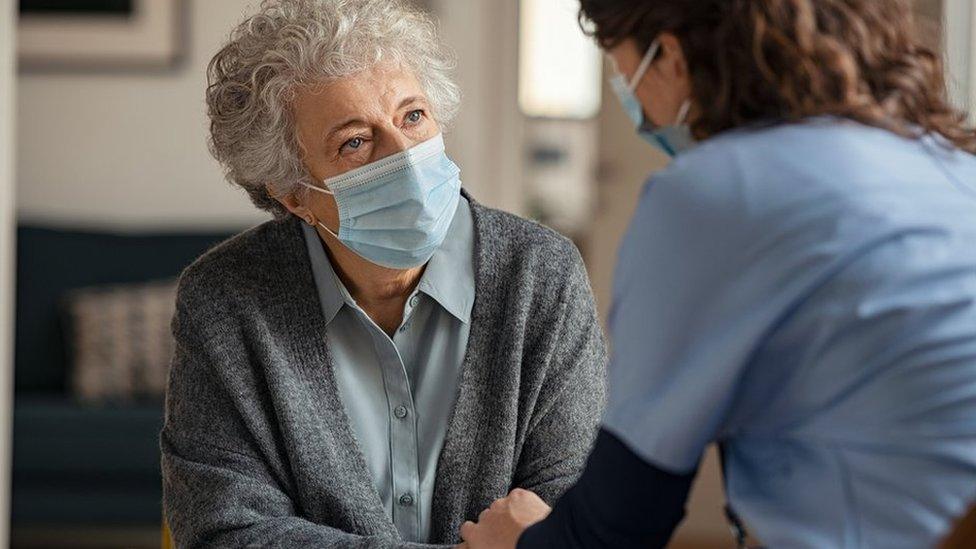Covid: Families welcome easing of care home restrictions
- Published
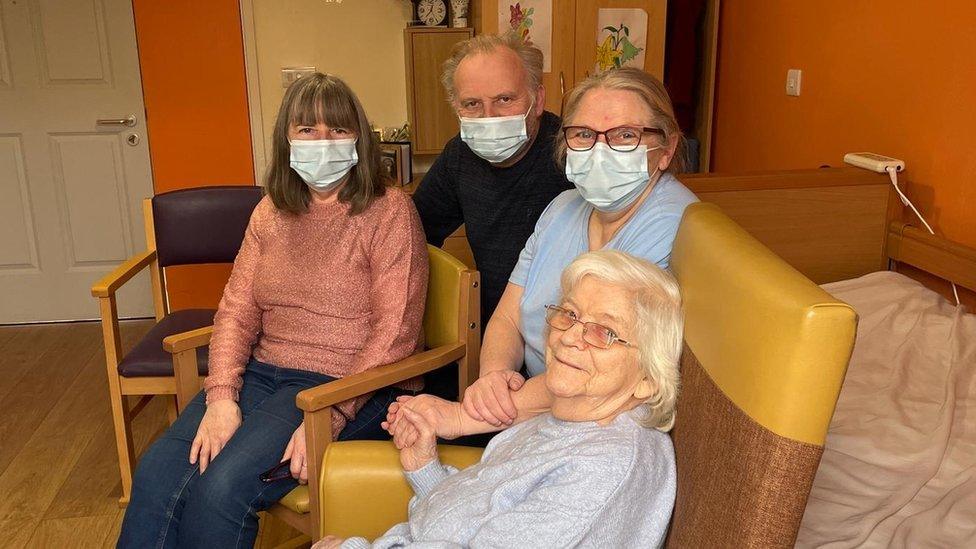
Mary, 93, got to see her family for the first time in a month on Monday
Care home residents have said they are "overjoyed" that Covid visiting restrictions have been relaxed.
Rules for seeing friends and family in care homes in England were eased from Monday as part of the government's lifting of Plan B measures.
Changes include reducing the number of days a care home has to shut from 28 to 14 after a Covid outbreak.
Ray, who lives at a Bristol home, said "It's great news. It's a life-line for us".
Saffron Gardens had to close to visitors for more than a month after an outbreak at the end of December.
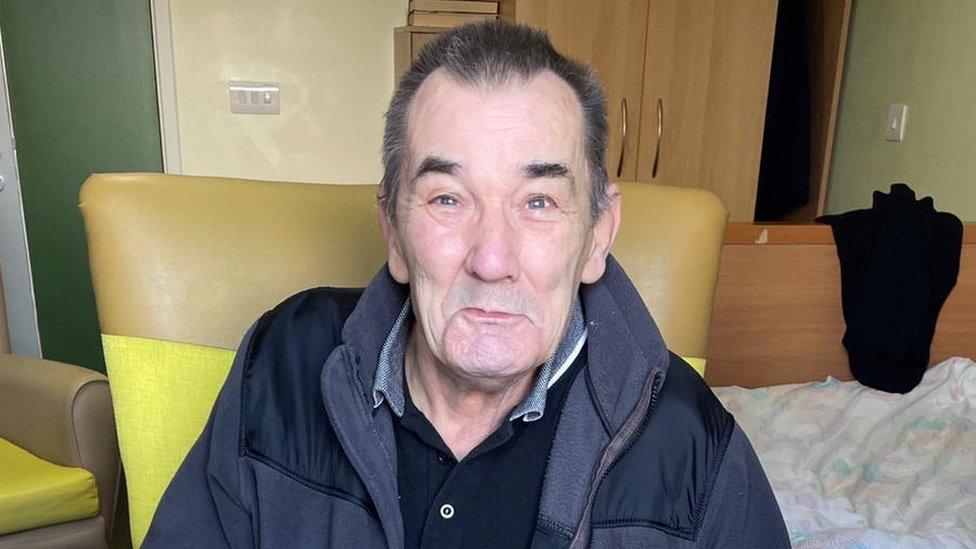
Ray, who has dementia, described the easing of restrictions as "a life-line for us"
Manager Steve Croom said care residents had been "the most restricted lot of people in the country for having to self-isolate, which has been damaging for relatives and their quality of life".
He said: "It's been difficult. We've had to stop residents' families coming in, all but for essential care givers. And if their resident has had Covid, they haven't been able to come in at all.
"It's had a big effect on our residents' quality of life."
Mary, who is also a resident at the care home, saw her family on Monday for the first time in a month.
The 93-year-old said she missed not being able to see them.
Her daughter Teresa Greenfield said: "Mum's hearing is quite poor, so it's very difficult to ring and speak to her on the phone.
"We were able to write to her. We ring up the staff, and they're lovely, and they'll tell us how she's doing, but there's nothing better than being able to see her, hold her hand and talk to her yourself."
As part of the lifting of the Plan B measures in England:
there is now no limit on the number of visitors allowed at care homes
essential care givers can keep visiting during a Covid outbreak
residents no longer need to test or self-isolate following normal visits out
the self-isolation period for those who test positive will be reduced from 14 to 10 days, with the ability to end it even earlier, subject to testing negative on days five and six
By 16 February care workers will also be asked to take lateral flow tests (LFTs) before their shifts, replacing the current system which includes weekly PCR tests.
Related topics
- Published31 January 2022
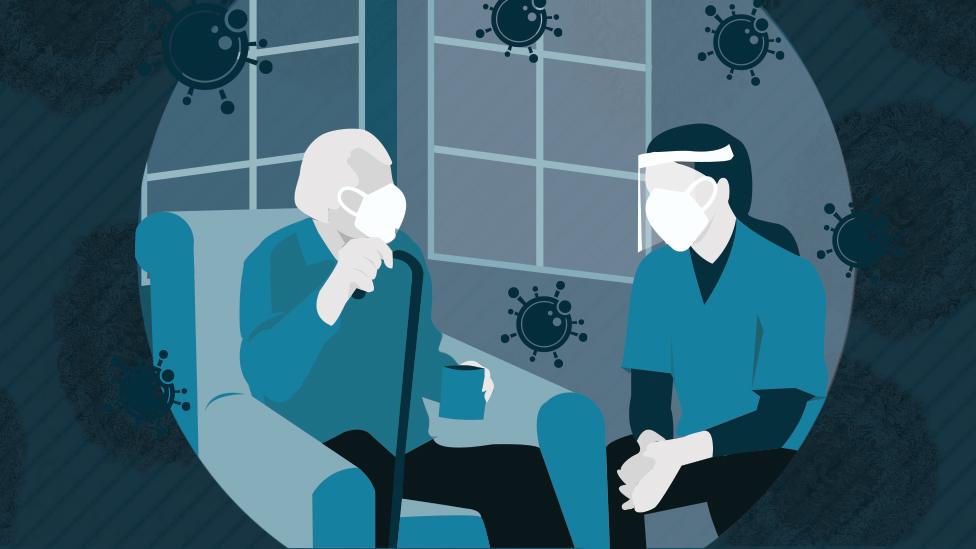
- Published27 January 2022
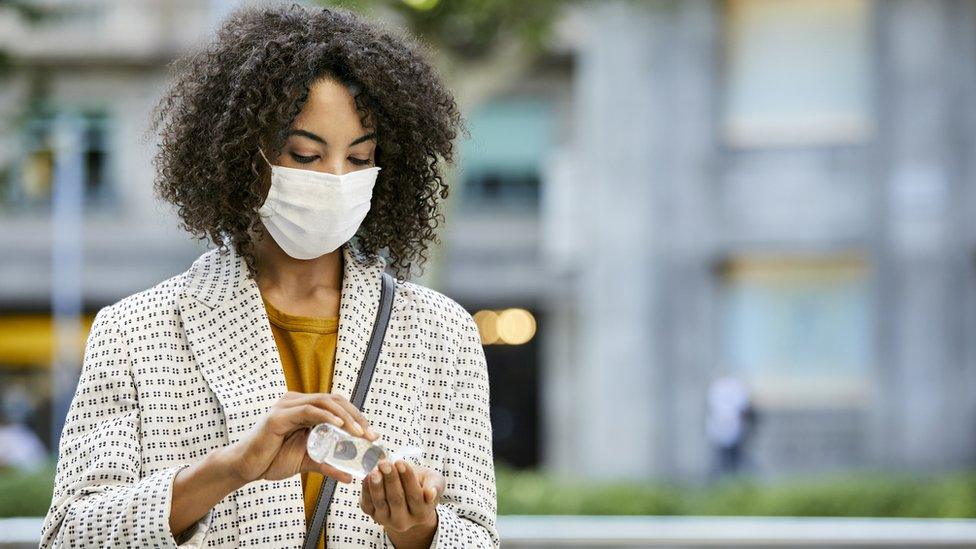
- Published2 October 2021
